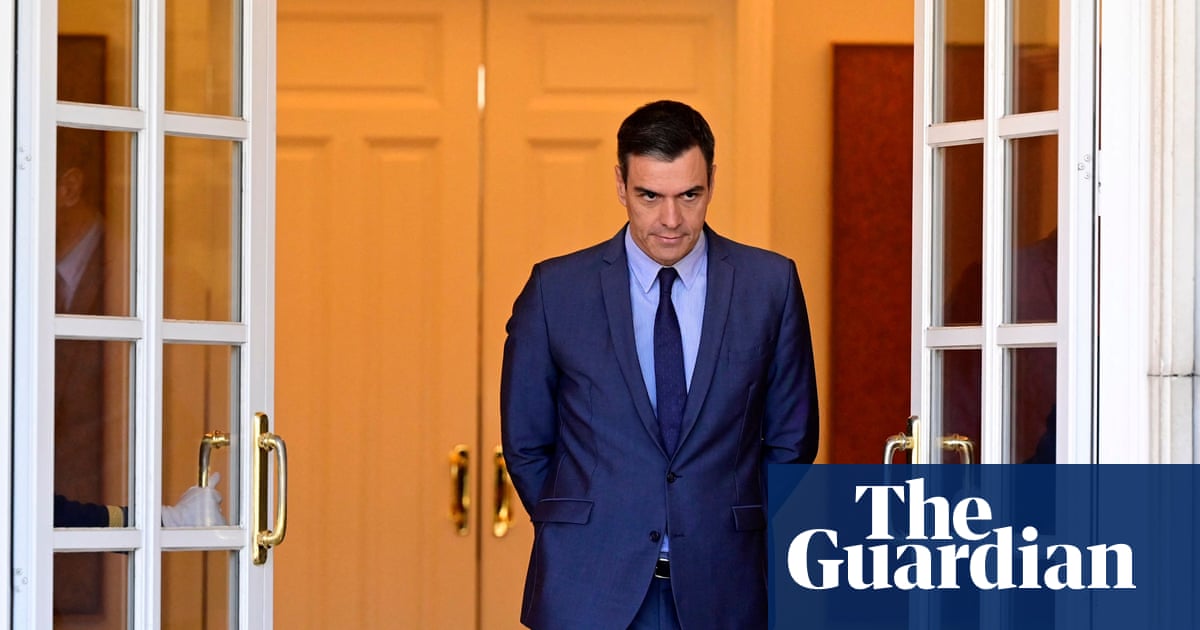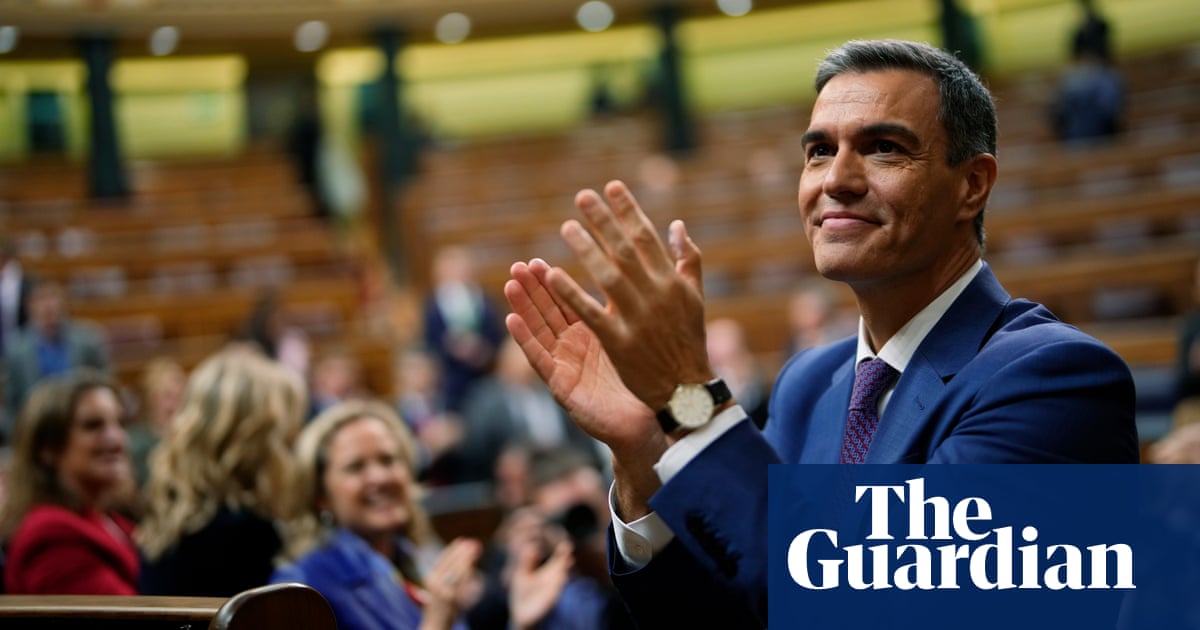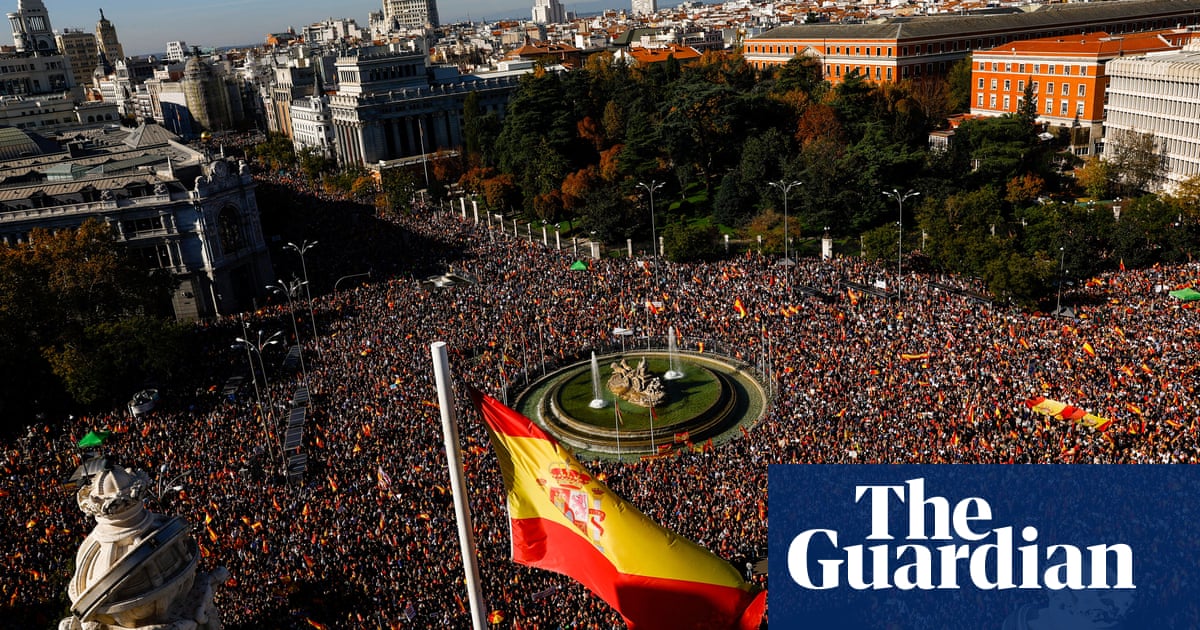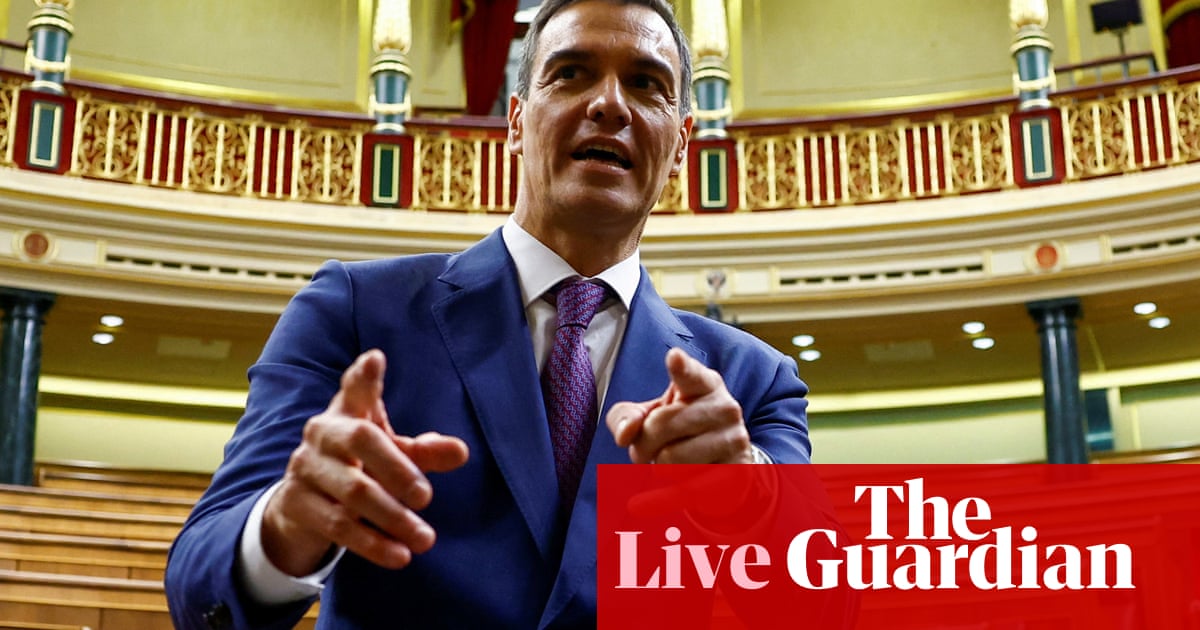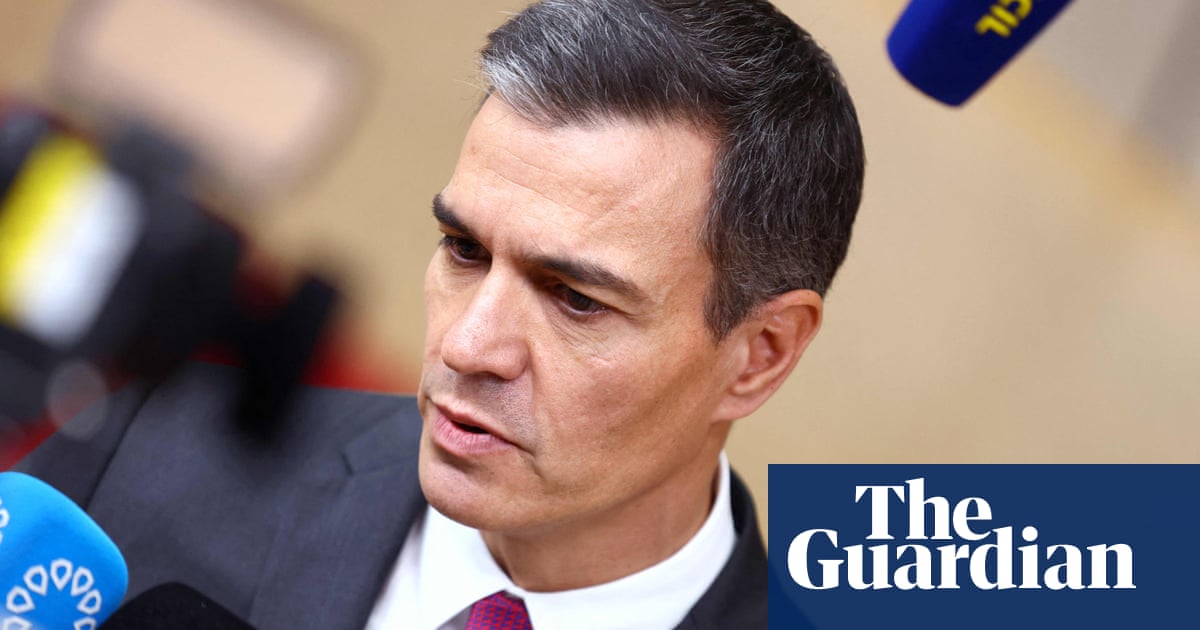
Members of the Spanish Socialist Workers’ party (PSOE) have backed plans to secure another term as prime minister for the party’s leader, Pedro Sánchez, in return for granting a hugely controversial amnesty to people involved in the illegal and unilateral bid for Catalan independence six years ago.
Spain has been in the hands of Sánchez’s caretaker government since July’s inconclusive snap general election, in which the PSOE was narrowly beaten by the conservative People’s party (PP). Although the PP won the most seats, it fell short of a parliamentary majority and has proved unable to form a government, even with the support of the far-right Vox party and other, smaller political groupings.
Sánchez and his allies in the leftwing Sumar alliance have the best chance of forming a government but can do so only with the support of the two main Catalan pro-independence parties, the Catalan Republican Left (ERC) and Junts (Together). Both Catalan parties have said their support for getting the PSOE back into office will be contingent on an amnesty for the hundreds of people who participated in the failed push to secede from Spain in October 2017.
While the ERC has signed off its deal with the PSOE, Junts, which is led by the former Catalan regional president Carles Puigdemont – who is still wanted by Spanish courts for his role in the doomed lunge for Catalan independence – is still negotiating its support.
After a ballot this week – in which the word amnesty was not explicitly used – 87% of PSOE members said they were in favour of “an agreement to form a government with Sumar and to attract the support of other political formations to achieve the necessary majority”. The party said 11.9% of its members voted against such an agreement, and 63.4% of its membership had voted.
The PSOE’s organisational secretary, Santos Cerdán León, said the result was proof of the desire of party members to avoid handing more power to the PP and Vox, who have struck governing coalitions in many Spanish towns and regions.
“The voice of the membership rings out loud and clear when the PSOE has a decision to make,” he said on Sunday. “Our sole motivation is to keep strengthening the welfare state in the face of the backwards steps that have been taken in the towns and regions governed by the PP and the nostalgic far right.”
The PP has attacked Sánchez for caving in on the amnesty, describing the move as a cynical attempt to hang on to power.
After weeks of hints and speculation, the acting prime minister finally confirmed the planned measure last weekend. “In the interest of Spain, in defence of coexistence among Spaniards, I defend today the amnesty in Catalonia for the events of the past decade,” Sánchez told a meeting of his party’s federal committee in Madrid last Saturday.
The PSOE leader, who once promised to bring Puigdemont back to Spain to face justice, risked considerable political capital two years ago by pardoning nine of the Catalan leaders behind the drive for secession.
A poll in mid-September showed 70% of Spaniards opposed the amnesty, and about 200,000 people have taken part in recent rallies against the measure organised by the PP and Vox.
Alberto Núñez Feijóo, the leader of the PP, has accused Sánchez repeatedly of selling out to Catalan and Basque nationalist parties.
“Our rule of law is being replaced by a nation of citizens who belong to a different category – a political elite that swaps perks without being beholden to the same laws as the rest of Spaniards, whom this elite regards as second division,” Feijóo said on Sunday. “But these second-division Spaniards will not bow our heads or stay quiet. We will not shut up in the face of this deception and attack on our democracy.”
Although the ERC and Junts have seized on the proposed amnesty as a means of reviving the stalled regional independence movement they are each jockeying to represent, support for an independent Catalonia has plummeted in recent years.
At the height of the crisis in October 2017, a survey by the Catalan government’s Centre for Opinion Studies found 48.7% of Catalans supported independence and 43.6% did not. According to a survey conducted in July by the same centre, 52% of Catalans now oppose independence and 42% are in favour.
Sánchez and his allies have until 27 November to attempt to secure congress’s backing to form a new government. If they fail, parliament will be dissolved and Spain will return to the polls in January for its sixth general election in nine years.




